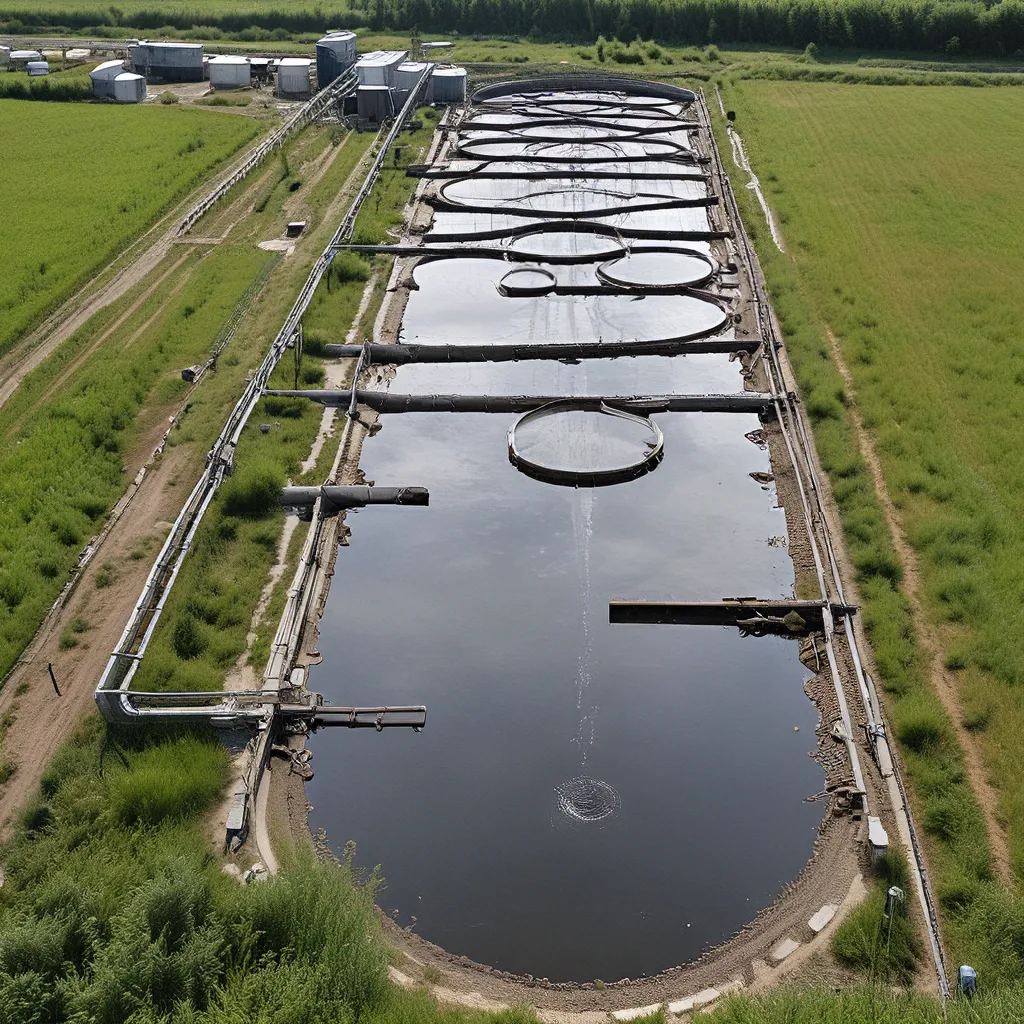
As an environmental enthusiast and self-proclaimed “waste alchemist,” I’ve always been fascinated by the untapped potential of our waste streams. It’s truly incredible when you realize that the very things we so often discard as useless – from sewage sludge to agricultural runoff – can be transformed into valuable bioproducts and renewable bioenergy.
The bioeconomy represents a paradigm shift in how we view and manage waste. Instead of seeing it as a burden to be disposed of, we’re now recognizing waste as a treasure trove of renewable resources waiting to be unlocked. And at the forefront of this revolution are the incredible innovations happening in the field of wastewater treatment.
Unlocking the Bioeconomy: How Wastewater Treatment is Fueling a Sustainable Future
I recently had the chance to tour the cutting-edge facilities of Alpha Wastewater, a company dedicated to pushing the boundaries of what’s possible in wastewater treatment. What I saw there was nothing short of mind-blowing. Through the strategic application of systems and synthetic biology, they’re developing novel anaerobic biotechnologies that can extract an astounding array of valuable bioproducts and renewable bioenergy from waste streams.
It’s all part of their mission to build a true circular bioeconomy – where waste is no longer an afterthought, but rather a vital feedstock for producing the fuels, chemicals, and materials of the future. And the potential is truly staggering. According to the U.S. Department of Energy, the United States alone has the capacity to sustainably collect 1 billion dry tons of biomass each year – enough to produce 50-60 billion gallons of low-carbon biofuels, including sustainable aviation fuel (SAF).
Bioengineering Innovation: Cracking the Code of Microbiome Metabolism
The key to unlocking this potential lies in the remarkable world of microbial communities and their extraordinary metabolic capabilities. As I learned during my visit, the researchers at Alpha Wastewater are using cutting-edge tools in systems biology, synthetic biology, and machine learning to systematically engineer these microbial “microbiomes” to recover a diverse array of valuable bioproducts from waste.
“The complexity of microbe-microbe interactions within these microbiomes has long been a major barrier to harnessing their full potential,” explained Dr. Samantha Lawson, the lead researcher at Alpha Wastewater’s Microbiome Engineering Lab. “But recent breakthroughs in areas like metagenomic sequencing and high-resolution mass spectrometry have given us an unprecedented window into the intricate metabolic networks driving these communities.”
By pairing these advanced analytical techniques with innovative genome editing tools, the team is now able to precisely manipulate and engineer microbiome assembly and function in ways that optimize the production of target bioproducts. It’s a bold and ambitious undertaking, but the potential payoffs are enormous.
Transforming Waste into Wealth: The Promise of Bioproducts and Bioenergy
Just imagine – sewage sludge transformed into renewable chemicals for manufacturing, agricultural runoff converted into sustainable aviation fuel, and food waste repurposed into high-value bioplastics. This is the future that the team at Alpha Wastewater is working tirelessly to create.
“The possibilities are truly limitless,” said Dr. Lawson with a gleam in her eye. “We’re talking about the chance to radically reduce our dependence on fossil fuels, create new economic opportunities in rural communities, and dramatically improve the environmental impact of our waste streams. It’s the very definition of a win-win-win scenario.”
And they’re not just talking the talk – the proof-of-concept projects already underway at Alpha Wastewater are yielding some truly remarkable results. By strategically engineering the microbiomes in their anaerobic digesters, they’ve been able to boost the production of volatile fatty acids (a versatile class of platform chemicals) by over 300% compared to traditional treatment methods.
But perhaps even more exciting are their efforts to produce sustainable aviation fuel from waste streams. “The aviation sector is under immense pressure to decarbonize, and SAF offers a crucial pathway to get there,” explained Dr. Lawson. “By tapping into that vast pool of waste biomass, we can generate low-carbon biofuels that deliver the same performance as conventional jet fuel, but with a dramatically reduced carbon footprint.”
The Path Forward: Overcoming Barriers and Accelerating Progress
Of course, translating these innovative concepts into large-scale, commercially viable technologies is no easy feat. As Dr. Lawson candidly acknowledged, there are still significant technical and logistical hurdles to overcome.
“Metabolic regulation within these complex microbiomes is still not fully understood,” she admitted. “And we need to develop much more sophisticated tools to precisely control and optimize product yields, reaction rates, and process stability. It’s a significant challenge, but one that we’re tackling head-on with our systems-level analysis and quantitative modeling approaches.”
Additionally, the team at Alpha Wastewater is working closely with government agencies like the U.S. Department of Energy’s Bioenergy Technologies Office (BETO) to address other barriers to widespread deployment, such as feedstock logistics, process scaling, and fuel certification requirements.
“It’s going to take a concerted, multi-stakeholder effort to fully realize the potential of the bioeconomy,” said Dr. Lawson. “But I’m confident that with continued innovation, strategic partnerships, and a solid commitment to sustainability, we can get there. The future of waste is anything but waste – it’s the key to a truly circular, low-carbon economy.”
As I left Alpha Wastewater’s facility, I couldn’t help but feel a renewed sense of optimism and excitement about the role that wastewater treatment will play in shaping our sustainable future. It’s a future where our waste streams are no longer a liability, but rather a valuable resource – one that we can harness to power our homes, fuel our planes, and forge the materials of tomorrow. And with visionary companies like Alpha Wastewater leading the charge, I can’t wait to see what the bioeconomy has in store.